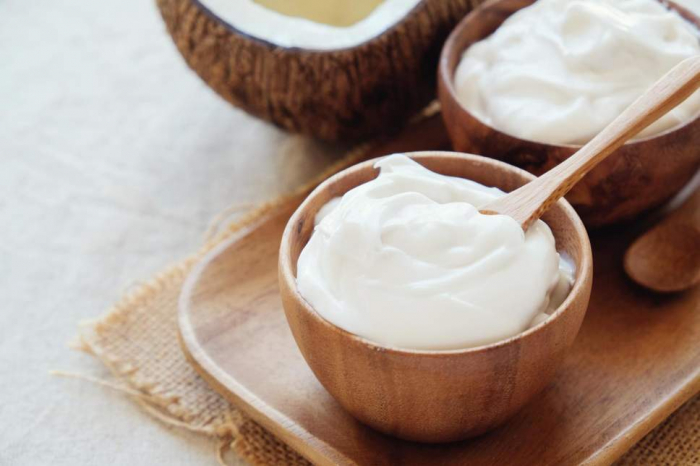Now, experts are urging us to reconsider the myths we've been sold by dewy-skinned influencers and glossy ad campaigns, pointing out the potentially harmful effects of consuming live bacteria.
In a recent article published in the journal JAMA Internal Medicine, associate professor at Harvard Medical School Pieter Cohen argues that probiotics might cause infections among those with poor-functioning immune systems.
He also points out that many of the touted benefits are not sufficiently supported by scientific studies, casting doubt over their validity.
Read on for everything you need to know about probiotics.
What are probiotics?
Found naturally in foods such as yoghurt, cheese, kimchi and sauerkraut, probiotics are defined by the World Health Organisation as “live microorganisms which, when administered in adequate amounts, confer a health benefit on the host”.
They are most commonly taken in capsule form as food supplements and are thought to restore the natural balance of bacteria in the gut after periods of illness, when taking a course of antibiotics might’ve irritated the stomach and intestines.
There are different types of bacteria which are classified as probiotics, these include lactobacillus, bifidobacterium and saccharomyces boulardii.
What are the benefits?
Given that probiotics have been scientifically shown to improve gut health, they may help people with gastrointestinal disorders, such as IBS and constipation.
The NHS claims that probiotics may also help reduce bloating and flatulence in IBS sufferers.
Some studies have claimed that probiotics can help combat episodes of diarrhoea, although there is insufficient evidence to support this claim.
Dietician Nichola Ludlam-Raine tells The Independent that probiotics may also help ward off illnesses during winter by supporting the immune system. However, the European Food Safety Authority has ruled that probiotic yoghurts cannot use this claim in their marketing due to a lack of evidence.
“Ultimately, they're thought to help restore the natural balance of bacteria in your gut,” adds Harley Street nutritionist Rhiannon Lambert.
“Probiotics may be helpful for some especially following an illness or treatment but there's little evidence to support them for the multitude of supposed benefits including treating eczema and stress,” she tells The Independent, pointing out that different types of probiotics may have different benefits.
“Importantly, there's likely to be a significant difference between pharmaceutical-grade probiotics that show promise in clinical trials and that found in drinks, yoghurts and supplements in shops,” Lambert adds.
Other benefits of probiotics, as listed by the NHS, include alleviating symptoms of lactose intolerance, treating pouchitis and reducing the likelihood of premature babies developing a potentially fatal condition known as necrotising enterocolitis.
Who should take them?
While the benefits have been contested, there’s little evidence to prove unpleasant side effects for people with healthy immune systems, making them safe to take for most people.
Nichola Ludlam-Raine suggests that people trial a probiotic drink or tablet if they are ever taking antibiotics, as they kill both the good and bad bacteria in our guts.
“Although they must be taken at separate times of the day,” she notes.
What are the potential risks?
Because probiotics are classified as a food as opposed to a medicine, they don’t undergo the same regulatory processes, meaning you can never be 100 per cent sure that the supplement you’re taking contains sufficient amounts of bacteria in order to have an effect.
Support free-thinking journalism and subscribe to Independent Minds
The NHS also states that some probiotic products may not even contain the bacteria stated on the food label.
What are the unsupported claims?
Probiotics have been linked to treating a number of health conditions, but the NHS states that many of these are unfounded.
Illnesses said to be treatable via probiotics include Crohn’s disease, eczema, vulvovaginal candidiasis and pneumonia, but the studies making these claims have been said to either be too small or too low in quality to warrant their validity.
The Independent
More about: probiotics
















































